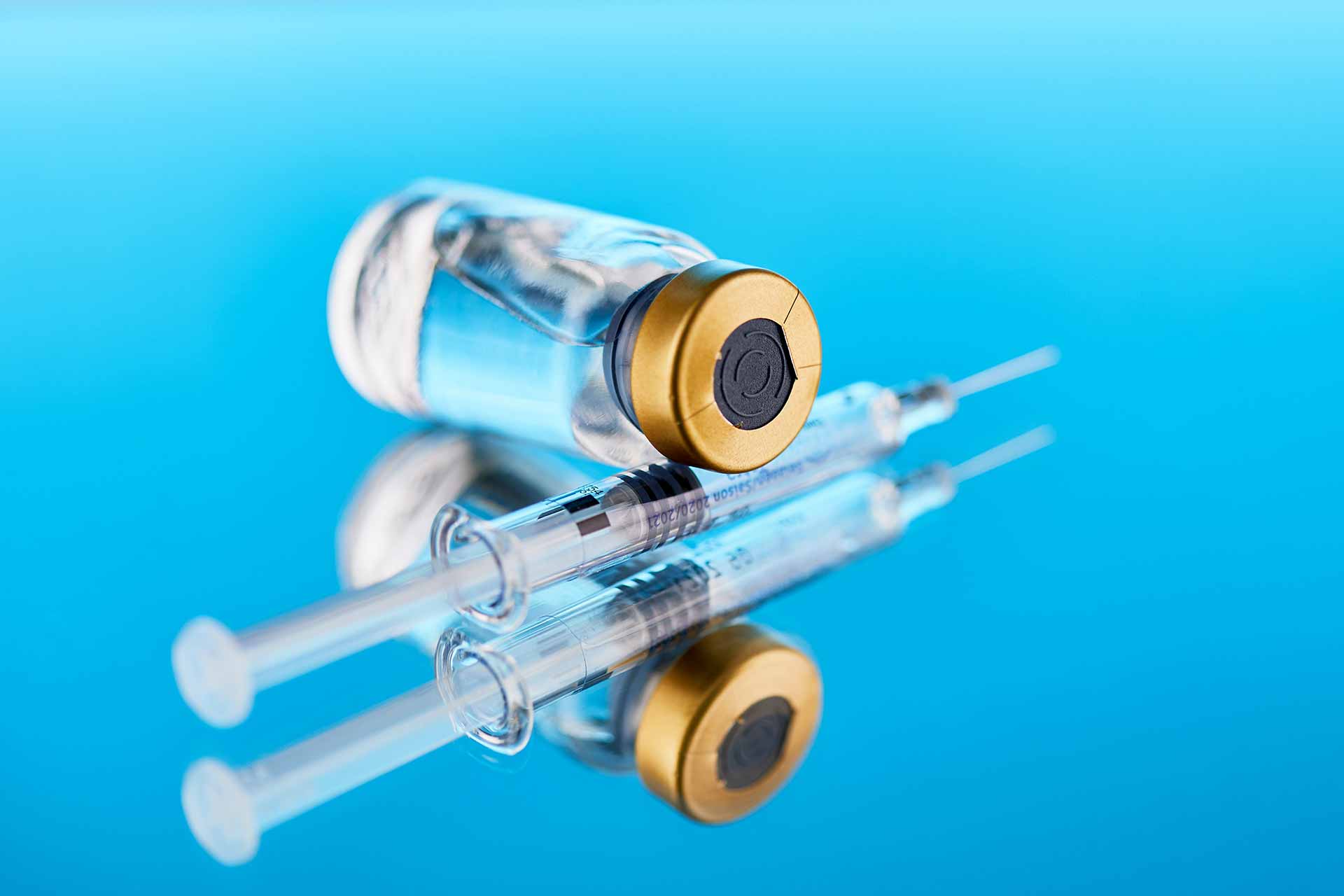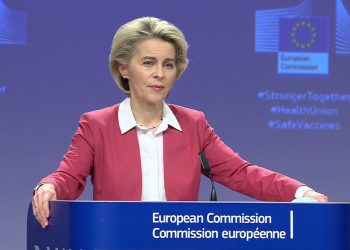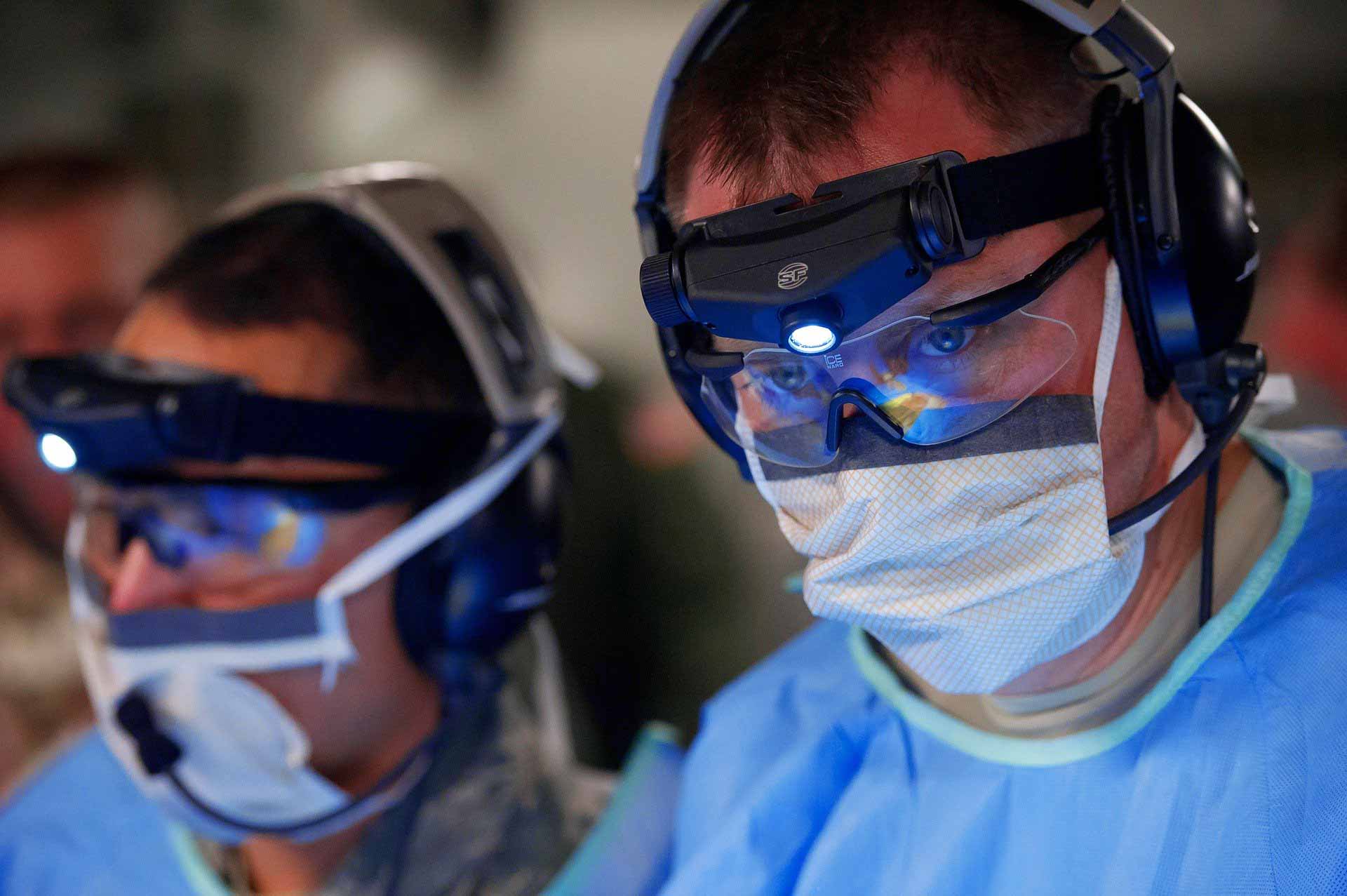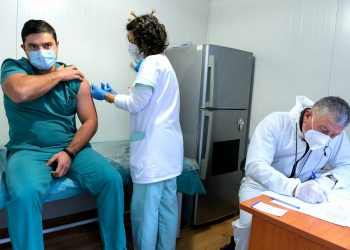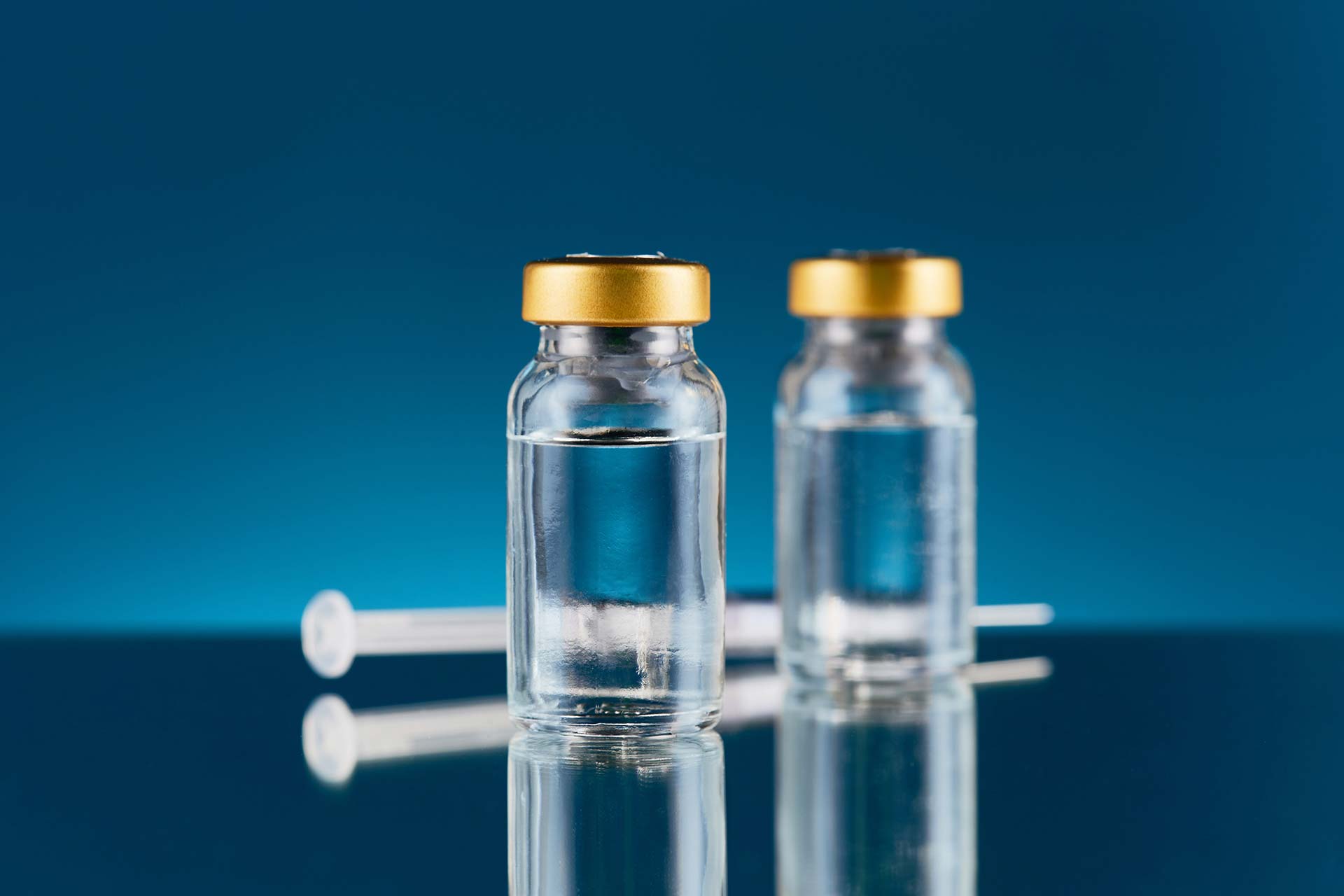The development and distribution of an effective vaccination against COVID-19 represents a lasting response to the pandemic. It is at the heart of the European Commission’s coronavirus response.
European strategy against COVID-19
The European Commission has a European strategy to accelerate the development, manufacturing and deployment of vaccines against COVID-19. On 15 October, the Commission adopted its Vaccination Strategy. EU presented the key elements Member States should take into consideration for their COVID-19 vaccination plans. Also EU noted priority groups to consider for vaccination first.
Action at EU level
Today, more than 100 million children worldwide are vaccinated annually. The vaccination protects against diseases such as diphtheria, tetanus, pertussis, tuberculosis, polio, measles, and hepatitis B. According to the World Health Organization (WHO), vaccination prevents an estimated 2-3 million deaths worldwide each year. Vaccination reduces disease-specific treatment costs, including antimicrobial treatments (prescribed for viral infections).
Public confidence in vaccination
Despite its brilliant track record, several EU and neighbouring countries are currently facing unprecedented outbreaks of vaccine-preventable diseases due to insufficient vaccination coverage rates. The waning of public confidence in vaccination, geographical differences in accessibility, and rise of disinformation on vaccination are a cause of concern and a major challenge for public health experts. Ensuring equitable access to vaccines for all EU citizens, fighting disinformation, and improving vaccine confidence are common objectives for the European Commission and EU Member States.
There are very strict rules within the European Union for the approval of any vaccines put on the market. The European Medicines Agency (EMA) carries out the evaluation and supervision of vaccines, once these have been designed. Vaccines contain antigens that confer immunity against specific pathogens, such as the influenza virus. However, for vaccines to be efficient, these also need to contain a number of other substances, including stabilisers, adjuvants and preservatives.
Vaccine development
Under its vaccines strategy, the Commission has forged agreements with individual vaccine producers on behalf of EU countries. Once available, proven safe and effective, all Member States will have access to COVID-19 vaccines at the same time. The distribution will be done on a per capita basis to ensure fair access.
The Commission put in place a common reporting framework and a platform to monitor the effectiveness of national vaccine strategies. To date, only 1 safe and effective vaccine against COVID-19 has been authorised for use in the EU.
BioNTech-Pfizer
On 21 December, the European Commission granted a conditional marketing authorisation for the COVID‑19 vaccine developed by BioNTech and Pfizer. This is the first COVID-19 vaccine with authorisation in the EU. This authorisation follows a positive scientific recommendation. It is based on a thorough assessment of the safety, effectiveness and quality of the vaccine by the European Medicines Agency.
6 contracts have been concluded that allow the purchase of a vaccine once proven safe and effective.
- AstraZeneca
- Sanofi-GSK
- Johnson & Johnson
- BioNTech-Pfizer
- CureVac
- Moderna
Objectives of the EU Vaccine Strategy
- ensuring the quality, safety and efficacy of vaccines
- securing timely access to vaccines for Member States and their population while leading the global solidarity effort
- ensuring equitable and affordable access for all in the EU to an affordable vaccine as early as possible
- making sure that preparations are ready in EU countries for the roll-out of safe and effective vaccines, addressing transportation and deployment needs. Also identifying priority groups which should gain access to vaccines first
The vaccine strategy should act as a reference point for Member States when formulating their national strategies.
Vaccination preparedness in EU countries
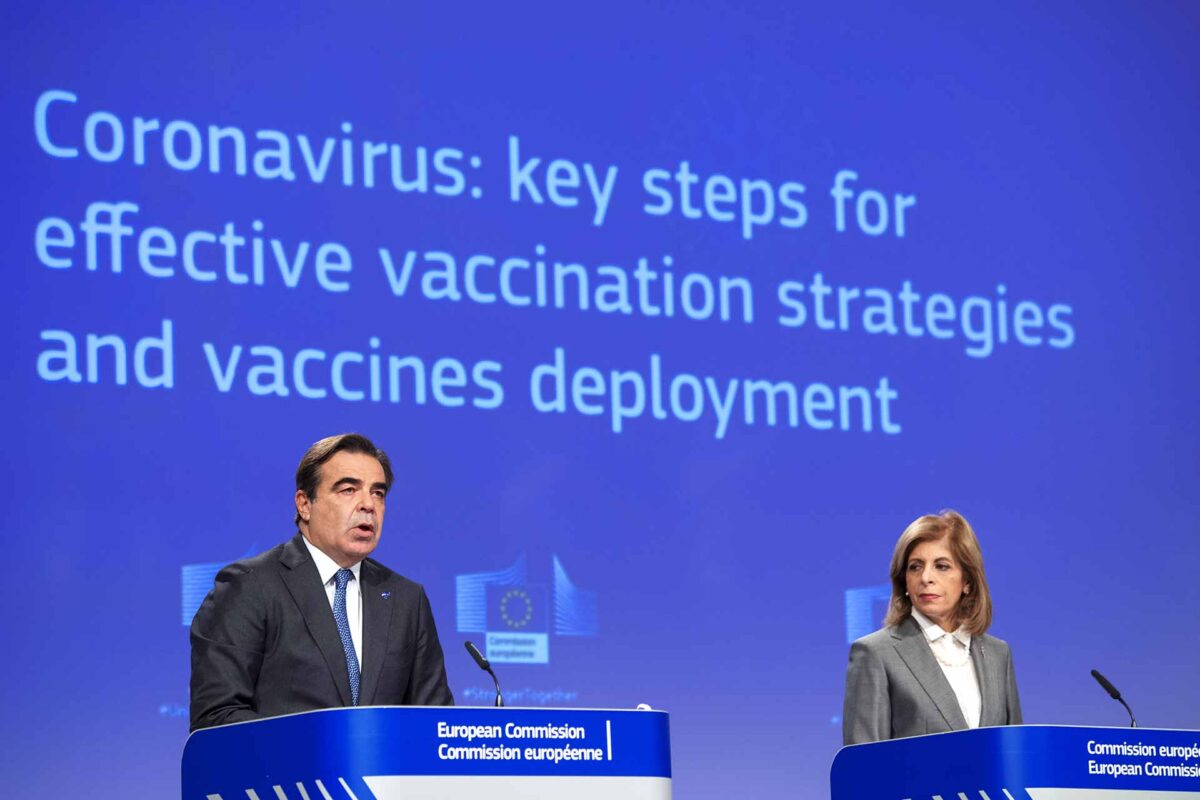
Vaccines alone do not save lives, vaccination does. Large-scale COVID-19 vaccination will be an important undertaking. The Commission published a Communication on preparedness for COVID-19 vaccination strategies and vaccine deployment on 15 October. Member States should start preparing already. The key elements to be considered for national vaccination strategies include:
- capacity of vaccination services to deliver COVID-19 vaccines, including skilled workforce and medical and protective equipment;
- easy access to vaccines for target populations, both in affordability and physical proximity;
- deployment of vaccines with different characteristics and storage and transport needs. In particular in terms of cold chain, cooled transport and storage capacity;
- clear communication on benefits, risks and importance of COVID-19 vaccines to build public trust
Vaccination priority groups
As the availability of the vaccines improves, vaccines strategies and their objectives will need to be adjusted accordingly. For example, while strategies are likely to focus in the beginning on decreasing the rate of fatalities and the burden on essential services. Later in the vaccination deployment process this may shift to the reduction of wider societal and economic restrictions. Meanwhile, high on the list of actions is a decision on which groups should have priority access to vaccines. The following groups get priority (unranked):
- healthcare workers
- persons over 60 years of age
- persons whose state of health makes them particularly at risk
- essential workers outside the health sector
- workers who cannot socially distance
- vulnerable socioeconomic groups and other groups at higher risk
With which companies have you concluded COVID-19 vaccine agreements?
The Commission is negotiating intensely to build a diversified portfolio of vaccines for EU citizens at fair prices. EU has now contracts with AstraZeneca (400 million doses), Sanofi-GSK (300 million doses), Johnson and Johnson (400 million doses ), BioNTech-Pfizer 300 million doses, CureVac (405 million doses) and Moderna (160 million doses). The Commission has concluded exploratory talks with the pharmaceutical company Novavax with a view to purchasing up to 200 million doses.
This means that the Commission has secured a portfolio of more than 2 billion doses. It was important from the beginning to build a diversified portfolio of vaccines based on different technologies. The Commission increased the chances that one or more of the vaccine candidates will gain approval by EMA. All vaccines candidates turn out to be safe and effective. Member States have the possibility to donate part of their doses to lower and middle income countries.
Which vaccine is now authorised?
The Commission has given on 21 December the conditional marketing authorisation for the vaccine developed by BioNTech and Pfizer. EMA gave positive assessment of its safety and efficacy. It is now waiting for EMA’s opinion on the possible conditional marketing authorisation for the vaccine by Moderna. It should be provided by 6 January at the latest.
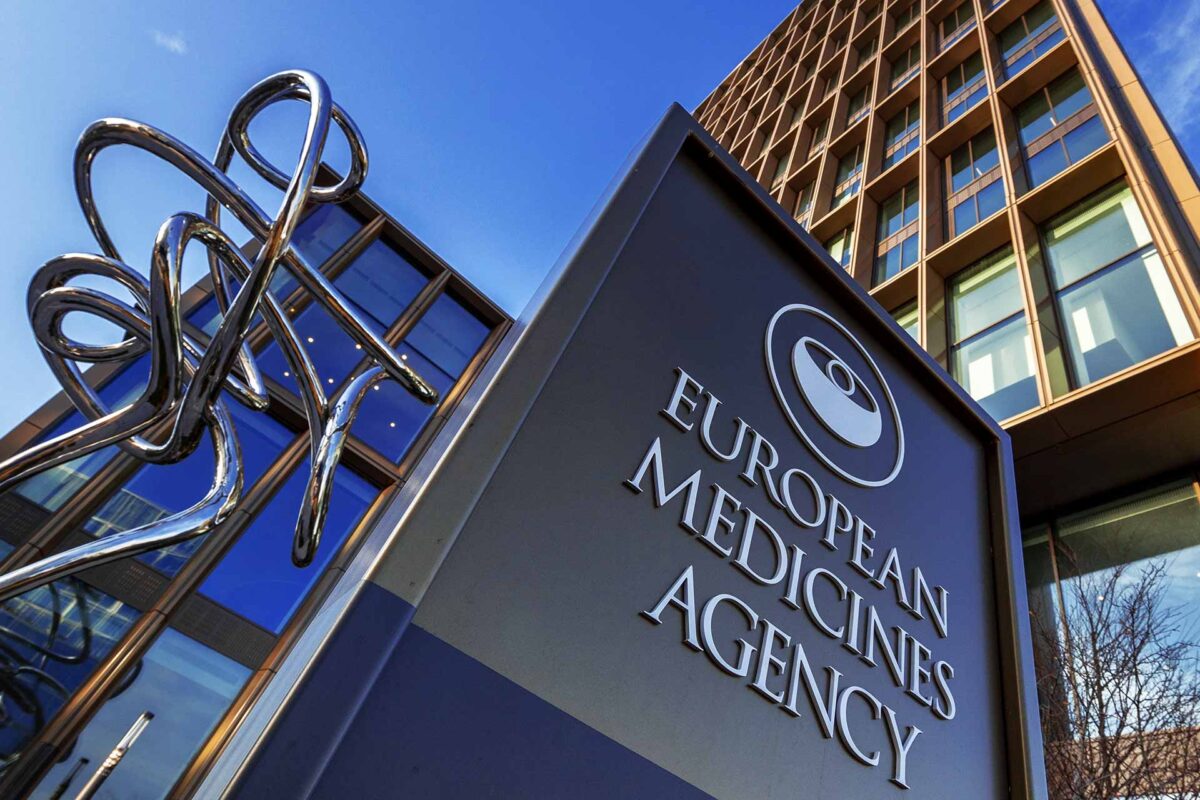
No other vaccine producer has formally applied for a marketing authorisation to EMA. In order to accelerate the process, EMA has started rolling reviews on the vaccines produced by Johnson and Johnson and AstraZeneca.
How will vaccines be monitored post authorisation under the Conditional Marketing Authorisation (CMA)?
The monitoring of the safety and effectiveness of vaccines after authorisation is a requirement under EU law and a cornerstone of the EU’s pharmacovigilance system relating to the detection, assessment, understanding and prevention of adverse effects or any other medicine-related problem. The system is exactly the same than for a normal market authorisation.
The safety and effectiveness of vaccines which have received conditional marketing authorisations are rigorously monitored, as for all medicines, through the EU’s established medicines monitoring system.
In addition, special measures are in place to quickly collect and evaluate new information. For example, manufacturers must usually send a safety report to the European Medicines Agency every six months. For COVID-19 vaccines, safety reports must be sent every month.
The European Medicines Agency will set up additional large-scale safety monitoring given the exceptionally high numbers of people expected to receive the vaccines.
Once authorised, when will vaccines be available in the EU?
In line with the EU vaccine strategy agreed with Member States, once authorised and produced, each vaccine will be available to Member States at the same time and at the same conditions.
The distribution will start progressively. This means that in the first few months, there will not be enough doses available to vaccinate all adults. The first doses will go to the priority groups identified by Member States (e.g. healthcare professionals, persons over 60 years of age). Supplies will increase over time, and vaccination should be available for all adults during the course of 2021.
For most contracts concluded, the majority of delivery is foreseen to be completed in 2021. Under some contracts, first deliveries will start in the first quarter of 2021.
First deliveries of the BioNTech and Pfizer vaccine start within days of authorisation and first vaccinations would take place in the context of the EU vaccination days of 27-29 December.
The Commission has been asking national authorities to prepare as early as possible for organising the fast and accessible deployment of vaccines, according to national vaccination plans and has issued guidance on the large-scale vaccination deployment.
The Commission is following the developments of national vaccination plans very closely and provides support notably by organising joint procurement for vaccination supplies, such as syringes and needles, and running a stress test of the national vaccination plans ahead of deployment together with the ECDC.
Will the EU have enough capacity to manufacture the COVID vaccines?
There is already substantial vaccine production capacity in the EU – and the Commission is working intensively to increase it. In addition, and in order to ensure that vaccine developers have the necessary capacity to scale up the production of COVID-19 vaccines as soon as they have been approved by the EMA, the Commission supports the necessary investment in the development of such production capacities.
How will logistics work? How will vaccines be distributed?
Logistics and transportation is a key aspect on which all Member States have to work, as emphasised in the Communication on preparedness for COVID-19 vaccination strategies and vaccine deployment of 15 October.
Delivery to national distribution hub(s) will be ensured by the manufacturers.
Member States will ensure further distribution to vaccination centres, who will also be responsible for the vaccination of their population.
Who should be vaccinated first?
All Member States will have access to COVID-19 vaccines at the same time on the basis of the size of their population. The overall number of vaccine doses will however be limited during the initial stages of deployment and before production can be ramped up. The Commission has therefore provided examples of unranked priority groups once COVID-19 vaccines become available.
Most countries have defined priority groups and are further refining who should get priority in these priority groups e.g. older person over 80 years of age. The ECDC published an overview of where EU/EEA countries and the UK are with the development of their vaccination plans/strategies. ECDC is also working on a modelling exercise on prioritisation to support Member States.
Will citizens know which vaccine they will be getting?
Yes.
When vaccines receive conditional marketing authorisation, the package leaflet with details on the specific vaccine will be available into all languages and in electronic form by the Commission.
All health care professionals and all patients would therefore have access to a leaflet in electronic form in their own languages.
The vaccine companies are responsible for putting in place the necessary mechanisms to ensure that each patient receives the package leaflet in print form in his/her language upon request without burdening healthcare professionals administering the vaccine.
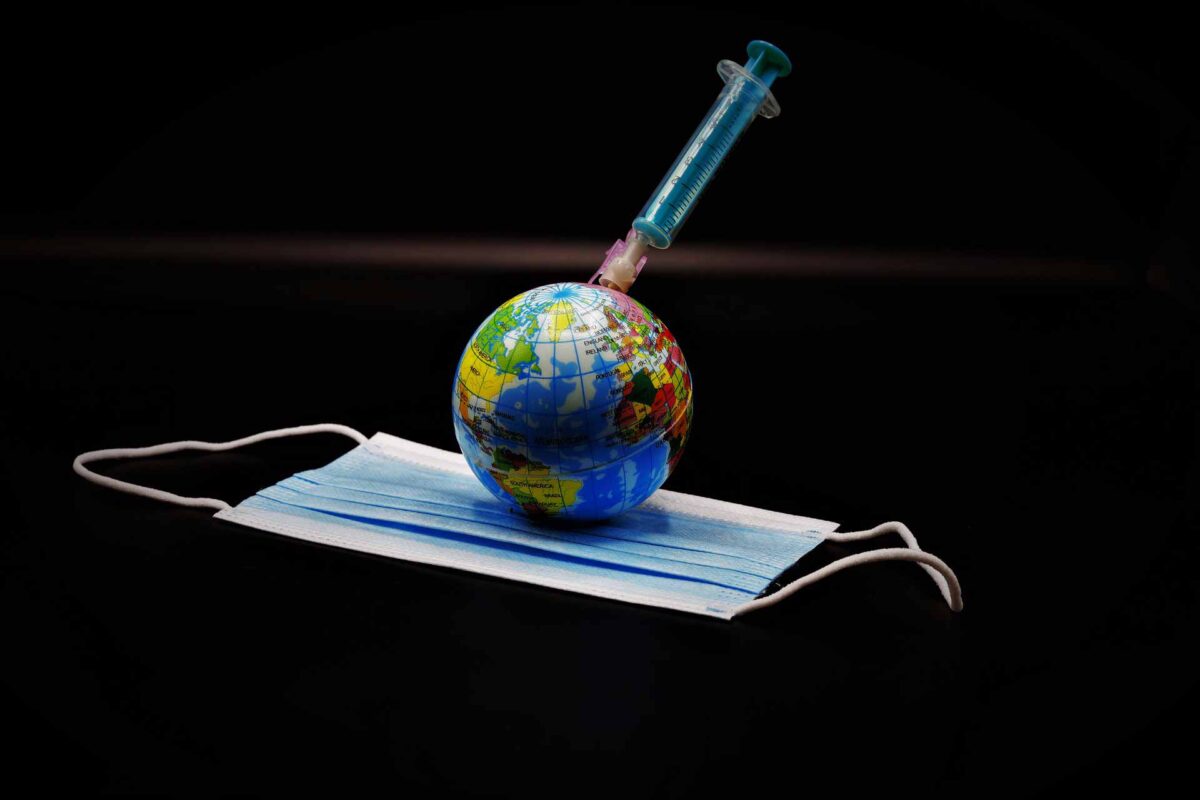
What labelling and packaging information will citizens and health care professionals get with the COVID-19 vaccines?
In order to allow for a rapid deployment of COVID-19 vaccines at large scale, the Commission has developed, with Member States and the European Medicines Agency, labelling and packaging flexibilities for a temporary period. Flexibility in the labelling and packaging requirements is expected to reduce transport costs and storage space, improving the distribution of the doses between Member States and limit possible impact on the production of other routine vaccines. Despite these flexibilities, anyone vaccinated and health care professionals will have access to all the information on the vaccine used.
An example of such flexibilities is the fact that the outer and immediate packaging may only be printed in English. Also, the package leaflet does not have to be included inside the package of the medicinal product. It will be available separately by the vaccine company, who will be responsible for the distribution of the printed package leaflet locally in the national language(s).
Some Member States do not require the package leaflet to be printed in their national language(s). The leaflet may be printed in English only, but the information contained in the leaflet should still be available in the national language(s). For instance via a QR code printed in the package leaflet and also available in the EMA website in all languages.
How will the Commission support Member States in the rolling-out of vaccines?
The Commission stands ready to support Member States to ensure the smooth deployment of COVID-19 vaccines. A number of EU instruments in the programming period 2021-2027 can offer financial support in this regard.
For instance, investments to support health reforms and resilient, effective and accessible health systems are eligible under the Recovery and Resilience Facility (RRF), and can be included in the national Recovery and Resilience Plans. Furthermore, the Cohesion Policy funds (European Regional Development Fund – ERDF and European Social Fund Plus – ESF+) as well as the REACT-EU programme can provide financing to Member States and their regions to strengthen their health systems, both in terms of managing and recovering from the current health crisis and as well as ensuring their resilience in the longer term.
Collectively, these programmes can support a range of investment needs, for example, in health infrastructure, training of health professionals, health promotion, disease prevention, integrated care models, digital transformation of healthcare, and equipment, including critical medical products and supplies to strengthen the resilience of health systems.
In this context, investments to prepare health systems for the roll out COVID-19 vaccines are eligible under these programme. Especially given the direct link to the resilience of health systems, the availability of critical medical products and disease prevention. However, it will be up to each Member State to decide on the priorities and content of their Recovery and Resilience Plan and also their Programmes for the Cohesion Policy funds.
How will vaccination certificates work?
A common approach to pharmacovigilance, and to trusted, reliable and verifiable vaccination certificates across the EU could reinforce the success of vaccination programmes in Member States and the trust of citizens.
Registering data on vaccination is important both at individual and population levels. For an individual, it is a means to know and demonstrate their vaccination status. Proof of vaccination should be available from the moment vaccination starts. Vaccination certificates could for example be useful in the context of travel, showing that a person has been vaccinated and therefore may not need testing and quarantine upon arrival in another country.
The Commission and Member States, together with WHO, are working on vaccination certificates. This work includes a minimum dataset, including a unique identifier, for each individual vaccination which will ease the issuance of certificates and vaccination monitoring on a Europe-wide basis from the moment that the COVID-19 vaccines are authorised.
The development of the common specifications framework will take account of and contribute to the work of WHO. EU funds, such as RRF, ERDF, InvestEU can support the setting up of the Immunisation Information Systems (IIS), Electronic Health Records and secondary use of health data on immunisation.
How much does the vaccine cost? What is the price of the vaccine?
The Commission negotiated advantageous deals with vaccine manufacturers to secure access to almost 2 billion doses so far.
At this stage the specific pricing per dose is covered by confidentiality obligations. However, a significant part of the overall costs are funded by a contribution from the overall EU funding for vaccines.
Will the vaccine be free in all EU Member States?
The large majority of the Member States intend to offer vaccination free of charge. This is a Member State responsibility.
Are the contracts with the companies publicly available?
The focus for the Commission is the protection of public health and securing the best possible agreements with companies so that vaccines are affordable, safe and efficacious.
Contracts are protected for confidentiality reasons. Confidentiality is warranted by the highly competitive nature of this global market. This is in order to protect sensitive negotiations as well as business related information, such as financial information and development and production plans.
Disclosing sensitive business information would also undermine the tendering process and have potentially far-reaching consequences for the ability of the Commission to carry out its tasks as set out in the legal instruments that form the basis of the negotiations. All companies require that such sensitive business information remains confidential between the signatories of the contract. The Commission therefore has to respect the contracts it concludes with the companies.
When will the vaccine allow the control of the pandemic?
For some known communicable diseases, it is understood that herd immunity allowing to control a pandemic and eventually eradicate a disease requires around 70% of the population to have protection either from vaccination or previous infection.
Depending on the pace of vaccination and natural infections, the pandemic might be controlled by the end 2021 in Europe.
Can we still spread the disease once vaccinated?
We do not yet know. We need additional evaluations to assess the effect of the vaccine in preventing asymptomatic infection. This includes data from clinical trials and from the vaccine’s use post-authorization.
Therefore, and for the time being, people after vaccination will need to wear masks, avoid indoor crowds, and respect social distance, so on. Other factors, including how many people get vaccinated and how the virus is spreading in communities may also prompt revision of this guidance.
If I have already had COVID-19 and recovered, do I still need to get the vaccine?
There is not enough information currently available to say if or for how long protection works from COVID-19 infection. This is the natural immunity. Early evidence suggests natural immunity from COVID-19 may not last very long. We need more studies to better understand this.

